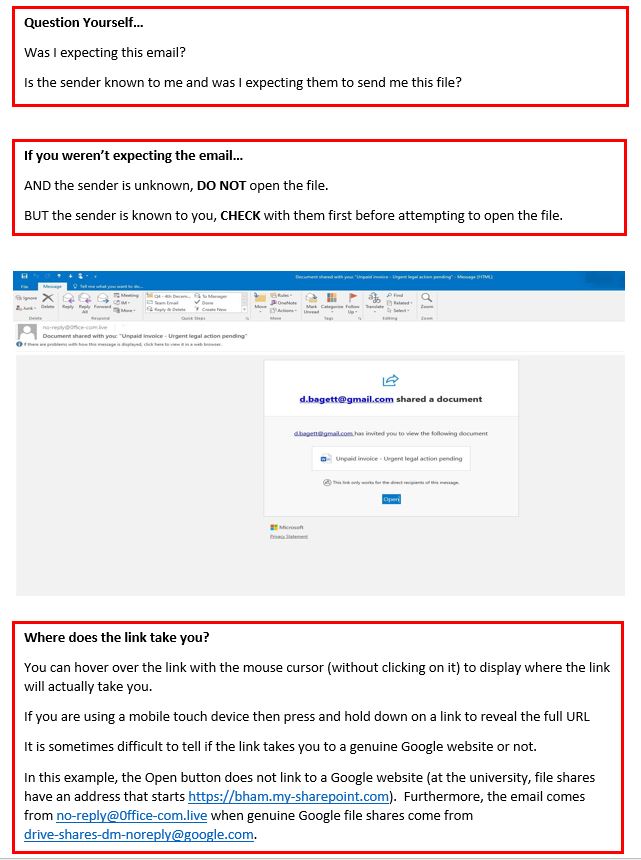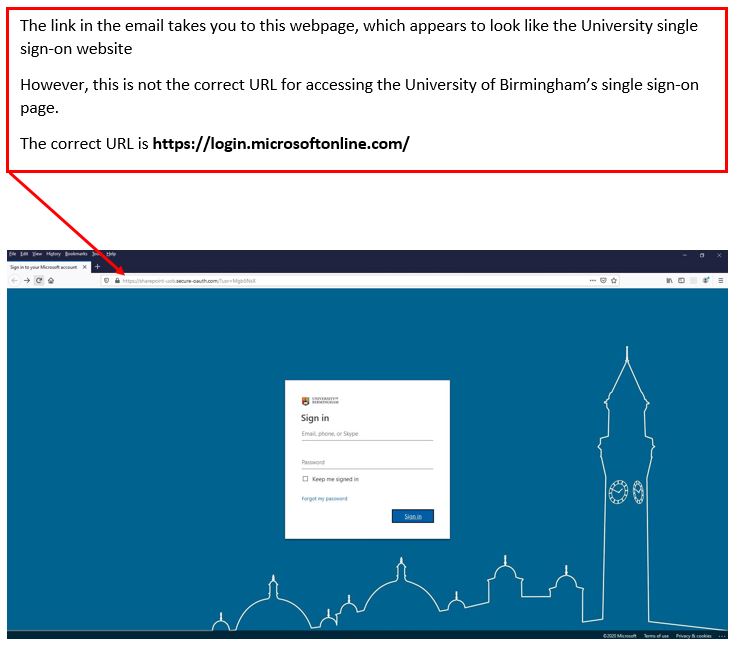The email you clicked on will have looked like this. It is pressuring you to click a link to a login page. We have highlighted some tell-tale signs to help you know what to look for in future:

The login form you will have typed your username and password into looked like this. Note that we changed the default visibility of login form, which a real phishing attack would not have done, to make it more obvious:

Emails have been sent on the following dates:
- Tuesday 7th December2021 - Monday 13th December 2021
IT Services has only sent a simulated phishing email on or around these dates. If you have received an email which has directed you here but wasn’t sent on one of the agreed dates or didn't look like the example above then it is possible that this was a real phishing attack and you must change your password immediately and contact the IT Service Desk for further advice.
You may ask yourself if you can trust the information here. If you look in your address bar, you will see that this page is on the intranet.bham.ac.uk site. This should tell you that the page is trustworthy because it is within the bham.ac.uk domain.